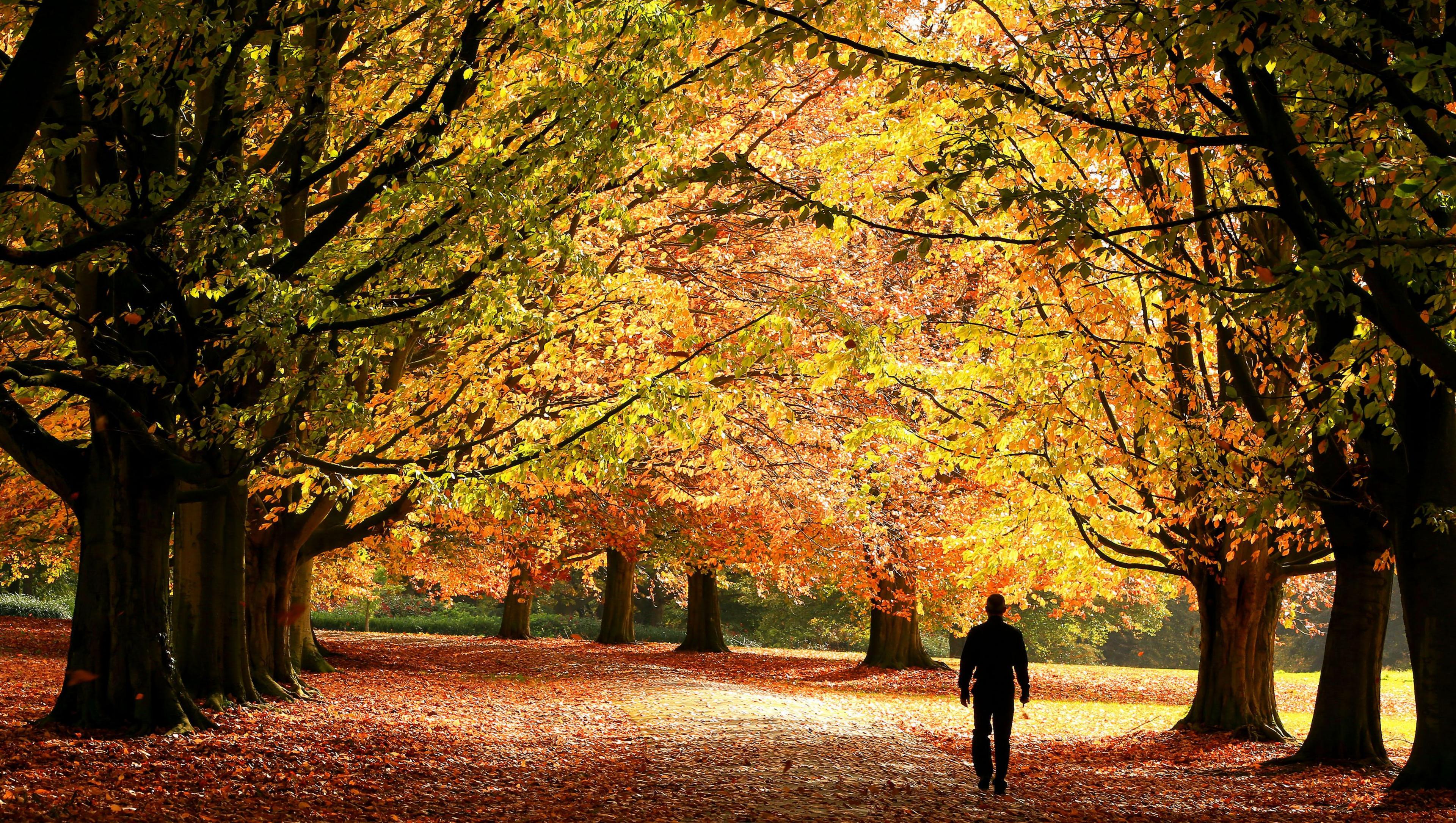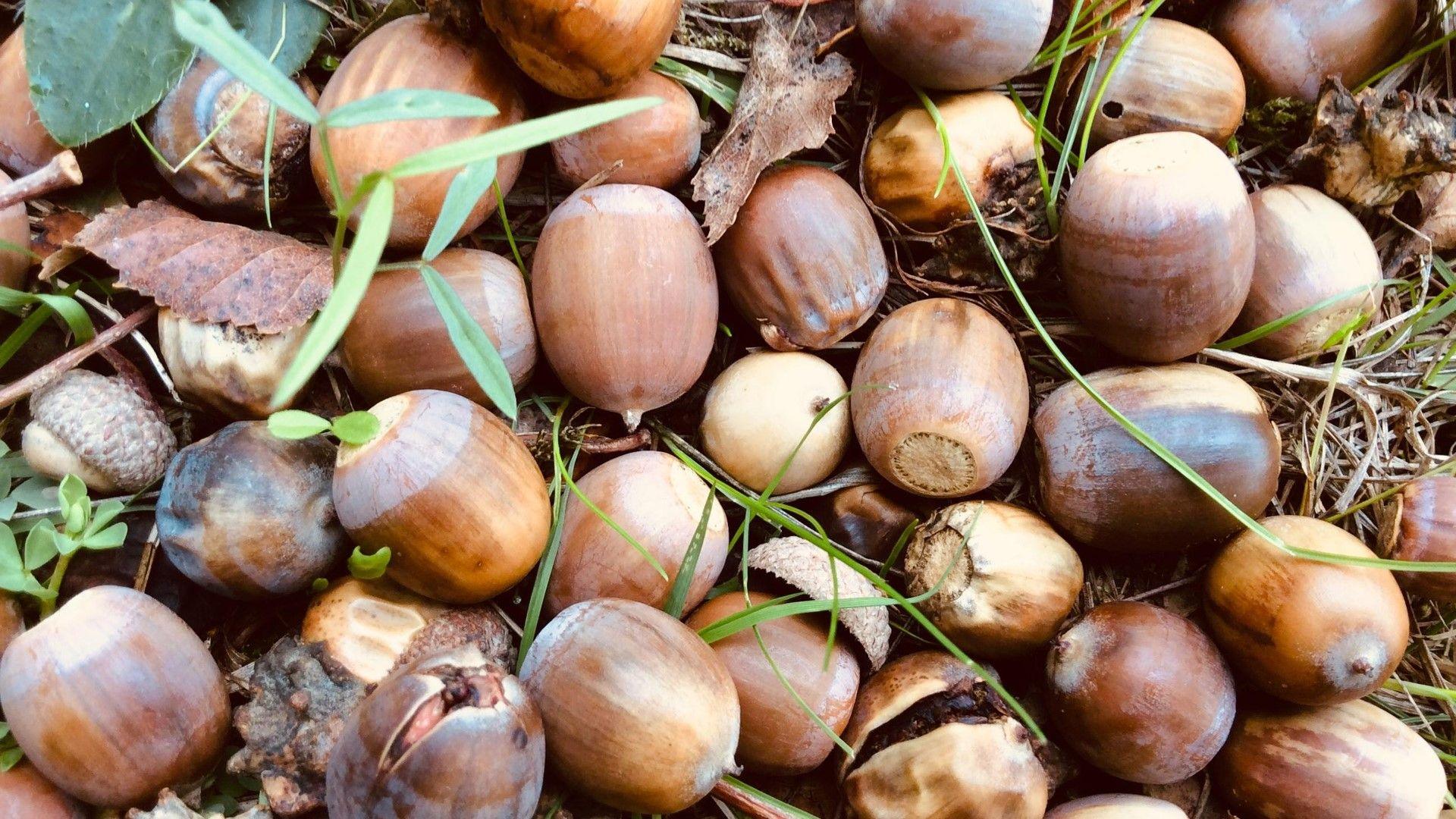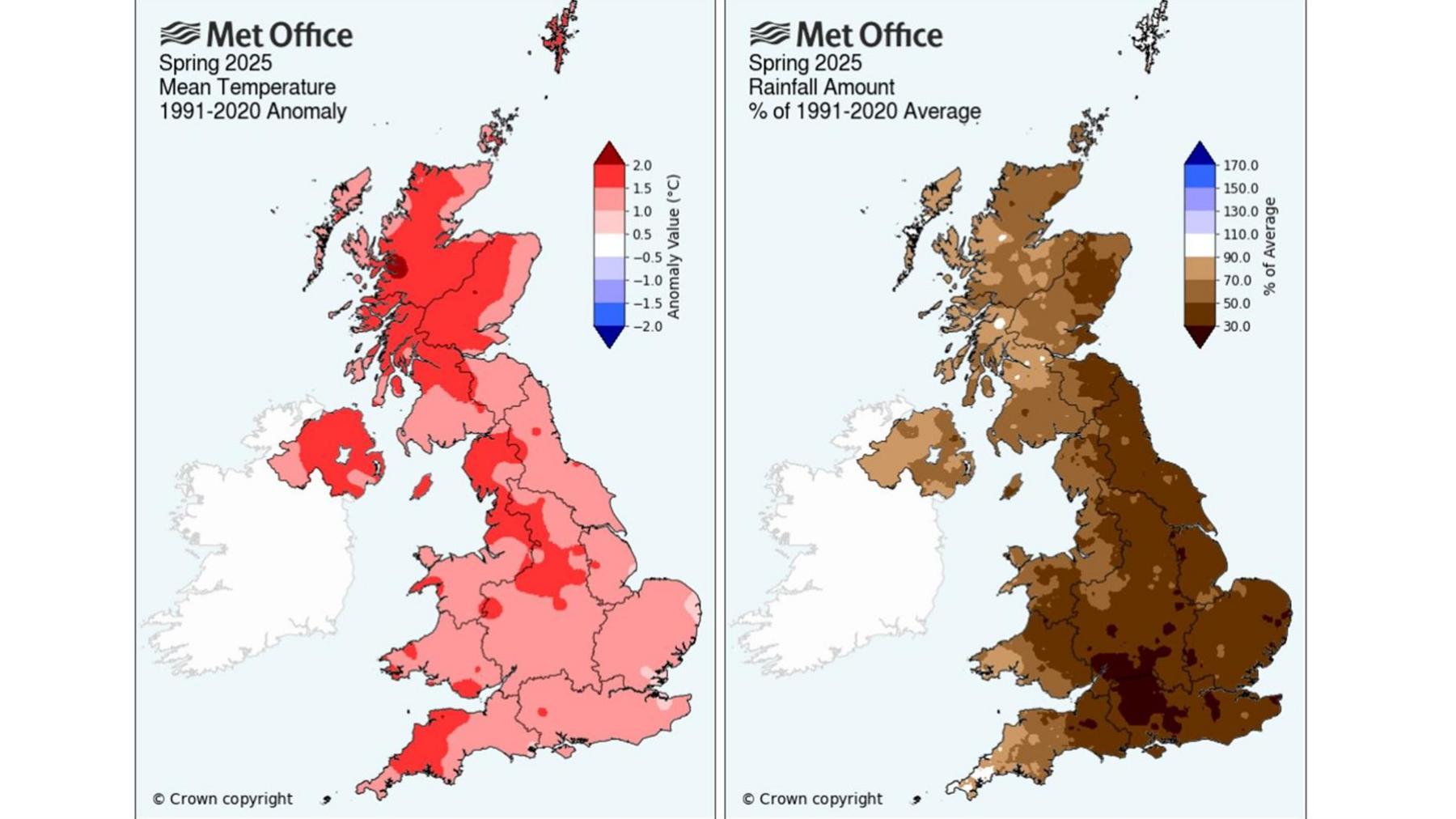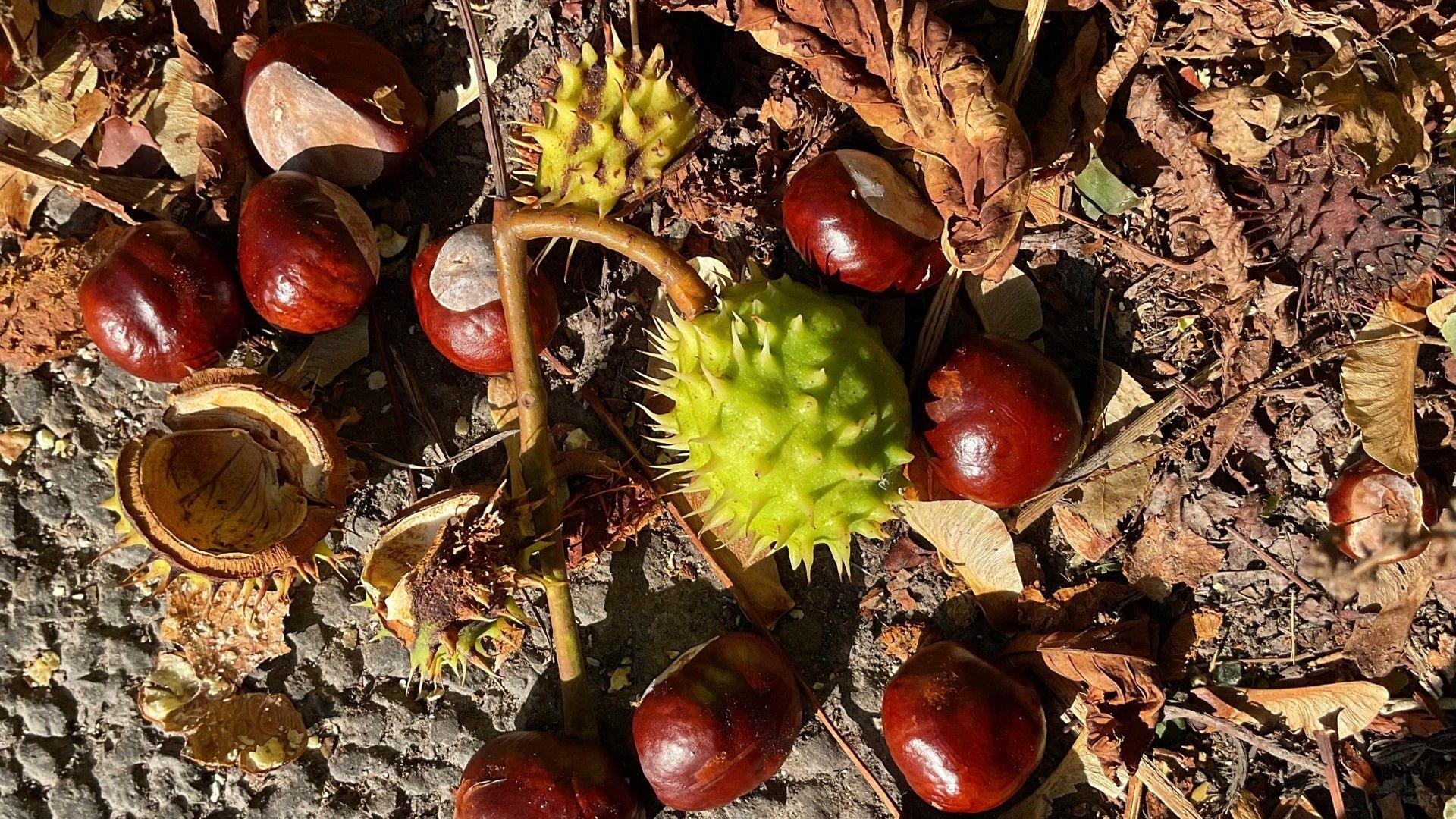 Image source, Press Association
Image source, Press Association
ByHelen Willets
Lead Presenter, BBC Weather
As autumn steps up a gear, it is not just leaves carpeting the ground this year.
You may have spotted a surplus of acorns littering the woodland paths.
This year's bumper crop is mainly due to a phenomenon called a 'mast year' - and the weather may also have a part to play.
Warm, dry spring conditions, just as we saw this year, are perfect for pollination of oak flowers - producing more acorns.
What is a mast year?
The number of nuts produced by some of our most recognisable tree species - such as oak and beech - fluctuate from year to year.
Some years there are very few but other times, like this autumn, we get an acorn bonanza.
Owen Phillips is from the Woodland Trust and explains: "Every few years, some species of trees and shrubs produce a bumper crop of their fruits or nuts.
"The collective term for these fruits and nuts is 'mast', so we call this a mast year."
 Image source, BBC Weather Watchers / Serena
Image source, BBC Weather Watchers / Serena
Why do mast years happen?
Mast years are thought to be nature's ancient way of ensuring the survival of certain species of trees and small mammals.
Squirrels, jays, mice and badgers feed on acorns and beech nuts and, during a mast year, there will be in increase in the population of some of these species.
According to the Woodland Trust, "the trees produce more food than the animals can possibly eat".
The leftover nuts can go on to develop into saplings meaning new trees start to grow.
Conversely, when there is a smaller crop for a few consecutive years, the trees are effectively keeping the populations of small mammal species in check.
Does weather also play a part?
Scientists believe a mast year happens due to a combination of ingredients - including the weather.
The conditions we get during the spring months are particularly important.
Dr Andrew Hacket Pain from the University of Liverpool uses data from the Woodland Trust in his research on masting. He explains: "Oak trees produce a similar number of flowers each spring, but the autumn's acorn crop depends on how many of these mature into ripe acorns."
He says rainfall and temperature patterns are an important part of that process, with warm and dry springs - just as we saw this year - promoting the pollination of oak flowers.
 Image source, Met Office
Image source, Met Office
Met Office statistics show that spring 2025 was warmer and drier than normal
Is climate change affecting 'mast years'?
It is currently not clear what impact climate change is having on mast years, although a number of studies suggest some changes in patterns as a result of global warming.
We do know that climate change is having an impact on the timing of biological events, and the study of this is called phenology.
The growing season has lengthened, with trees and shrubs bearing fruit earlier and autumn events such as leaf fall being delayed.
Alex Marshall, citizen science assistant at the Woodland Trust, told us: "Changing phenology is one of the first observed responses to climate change.
"A change in phenology can lead to mismatches in the timings of ecological connections within communities as some species may respond faster or slower than others".
In other words, the interactions between different plants and animals may be disrupted.
 Image source, BBC Weather Watchers / Barbara
Image source, BBC Weather Watchers / Barbara
It is not only acorns that have been affected by warm weather this year.
Horse chestnut trees have been dropping their conkers early, falling to the ground before reaching their full size.
If you have spotted any unusual signs of autumn this year and enjoy taking photographs of weather and nature, why not sign up to BBC Weather Watchers.
.png)




